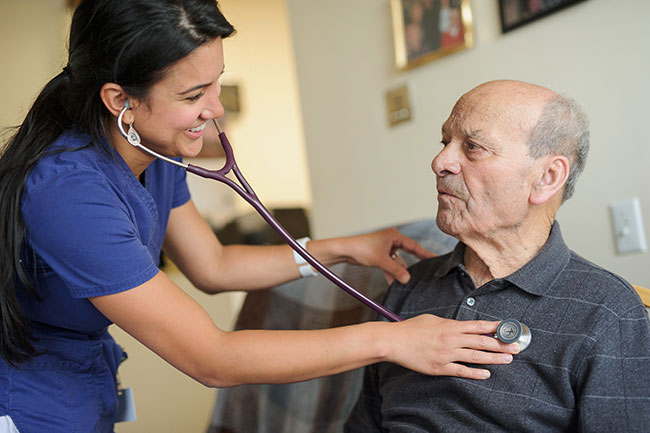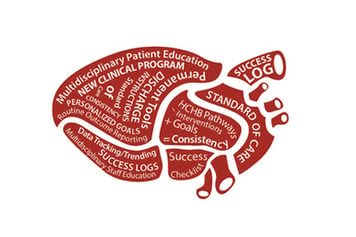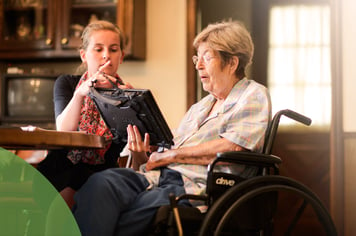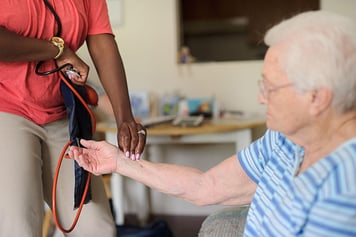With American Heart Month now here, Amedisys is pleased to report some big news that’s close to our hearts: we’re seeing successful preliminary results from a promising new pilot project that targets heart failure – so much so that we’ll be rolling out training for the program companywide this month.
[action 1]
The timing here is perfect. American Heart Month is dedicated to educating the public about cardiovascular disease, the nation’s top killer of both men and women. According to the CDC, some 85.6 million Americans live with cardiovascular diseases. An estimated 5.7 million suffer from heart failure in particular.
The Amedisys Heart Failure Program pilot, a multidisciplinary specialty initiative in home health, currently involves more than 300 heart failure patients at 14 Amedisys care centers throughout Alabama.
Under the program, our clinicians step in to educate – and ultimately empower – patients and their families to manage their condition at home, maintaining wellness and fostering independence. In the process, patients are coached and motivated to take on a wide range of responsibilities. They set personal goals, regularly weigh themselves, monitor their symptoms, stay alert for warning signs and document progress on a handy checklist that enables them to communicate more effectively with their physician. Most importantly, patients and family members learn what to do when they see symptoms.
Over the long-term, our new Heart Failure Program will result in lower hospital readmission rates, improved functional status and decreased shortness of breath. Success will drive higher quality of life, lower costs for all and longer lives.
Our overall “Heart Suite” program also encompasses new care protocols for two other diagnoses – Acute Myocardial Infarction (AMI) and Coronary Artery Bypass Graft (CABG).
Recently, a heart failure patient in the pilot gained three pounds in a single day. Such weight gain in patients with heart failure is a symptom that suggests fluid retention, an indicator that their condition is worsening. This patient’s wife, who had gone through our pilot program and received our patient education booklet, knew to call the care center immediately.
In response, Amedisys clinicians quickly contacted the family’s primary care physician, who ordered medication for the patient and a skilled-nursing visit to his home. His nurse drew labs and helped the patient make an appointment with his physician. Within two days, the patient had lost eight pounds. Avoiding a visit to the emergency room and possible readmission to the hospital enabled him to stay at home. Crisis averted.
The key here was that the patient’s wife knew when to call, and she and her husband were able to manage through this episode. Better outcomes – that’s what our new Heart Failure Program is all about.




